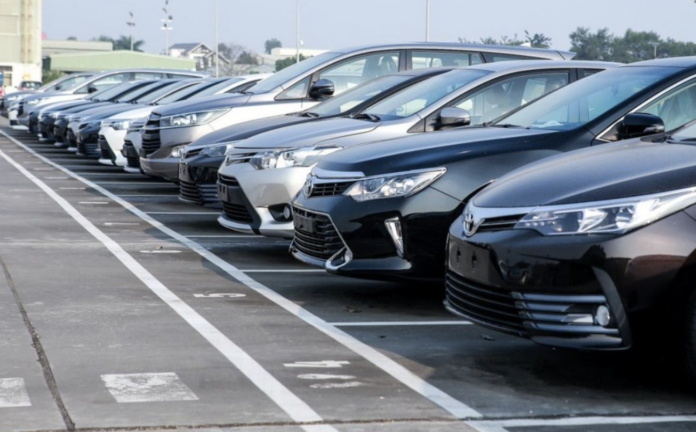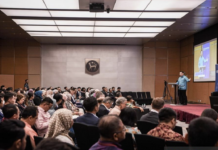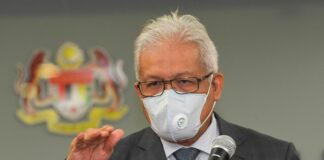KUALA LUMPUR, May 4 — The automotive sector, which has recorded a sales uptrend so far this year, needs to address the issue of manpower shortage to drive its recovery momentum beyond the sales tax exemption period ending June 30, 2022, and hence continue its contribution to the national economy.
After being hit by the closure of assembly and production facilities as well as showrooms during the pandemic-induced lockdown, the automotive industry is now gearing up to meet the pent-up demand.
But does the industry provide wages that are sufficiently attractive to woo local and foreign workers, especially as people are manoeuvring through the higher cost of living?
The Proton Vendors Association has touted the intake of foreign workers as the solution to prevent the disruption to the national automotive manufacturing ecosystem, saying that if the ecosystem collapsed, it would lead to the loss of more than 500,000 jobs as well as wiping out up to 4.5 per cent of the nation’s Gross Domestic Product.
Attracting local talent through better wages
Automotive analyst Shamsul Yunos urged the industry to review what it considers as fair wages as part of the solution for overcoming manpower shortage in the sector.
“Increasing wages is highly important for the industry to attract the talent that is available in this country, and this requires companies to work on a business plan that adds more value to their products so that they can pay better wages,” he told Bernama.
Shamsul voiced his opposition to the use of foreign labour unless absolutely necessary for menial work that the industry is unable to get Malaysians to do.
“But even then, there are technological solutions that we can use to increase productivity of even street sweepers that would allow them to be paid decent living wages.
“It is very rarely about the unavailability of labour but simply about the reluctance of businesses to pay fair wages,” he said.
Meanwhile, WapCar.my (an automotive news and review site) head of content Hans Cheong said the debate on allowing more foreign workers is just a symptom of a bigger problem which is not unique to manufacturing but to blue-collar workers in general.
“Even car workshops are facing a chronic shortage of technicians, and companies doing maintenance for heavy machineries used in the construction industry are also having trouble finding enough skilled labour,” he said.
Cheong said the debate on legalising foreign workers does not address the root cause of the problem.
“Local industries lack scale and competitive products to invest in automation, so they continue to rely on cheap labour and will forever be asking for assistance,” he said.
Timely to look at automation
Bank Islam Malaysia Bhd chief economist Mohd Afzanizam Abdul Rashid said automation has always been the buzzword when it comes to efficiencies and productivity.
“So perhaps it is timely to look at the current setting, whether it is sustainable or otherwise. Then we look at the local talent. Are there sufficient local engineers or technicians who can serve the industries?
“Is there a gap in our local talent in terms of skill set? And what are the measures to reduce the gap? Judging from the automotive industry’s responses, it seems that they have taken all those steps (to resolve the issue),” he said.
Mohd Afzanizam said perhaps, the final piece of puzzle lies in the local talent’s attitude towards work and this can be very tricky as the problem may not be straightforward to identify.
“In reality, to earn a better pay, it will take some time. We, as employees, need to prove ourselves — (show) we are the right talent and can do the job better — and we would eventually command a certain premium based on the skills that we can offer over time,” he added.
Sector’s bright outlook
The Malaysian Automotive Association has forecast a 17.9 per cent growth in total industry volume to 600,000 units for 2022 from 508,911 units recorded last year.
In January, its president Datuk Aishah Ahmad said passenger and commercial vehicle sales were expected to reach 540,000 and 60,000 units, respectively, this year.
“The global economy is expected to rebound post-pandemic as economies worldwide have largely opened up.
“The sales tax exemption incentive for passenger vehicles till June 30, 2022, and ramping up of production and deliveries by automotive companies to fulfil backlog and new orders will be the main contributors to improving sales,” she said.
Besides that, Bank Negara Malaysia is not rushing to raise the overnight policy rate (OPR), hence providing an additional stimulus to the sector.
At its monetary policy meeting in March, the central bank decided to maintain the OPR at 1.75 per cent.



















